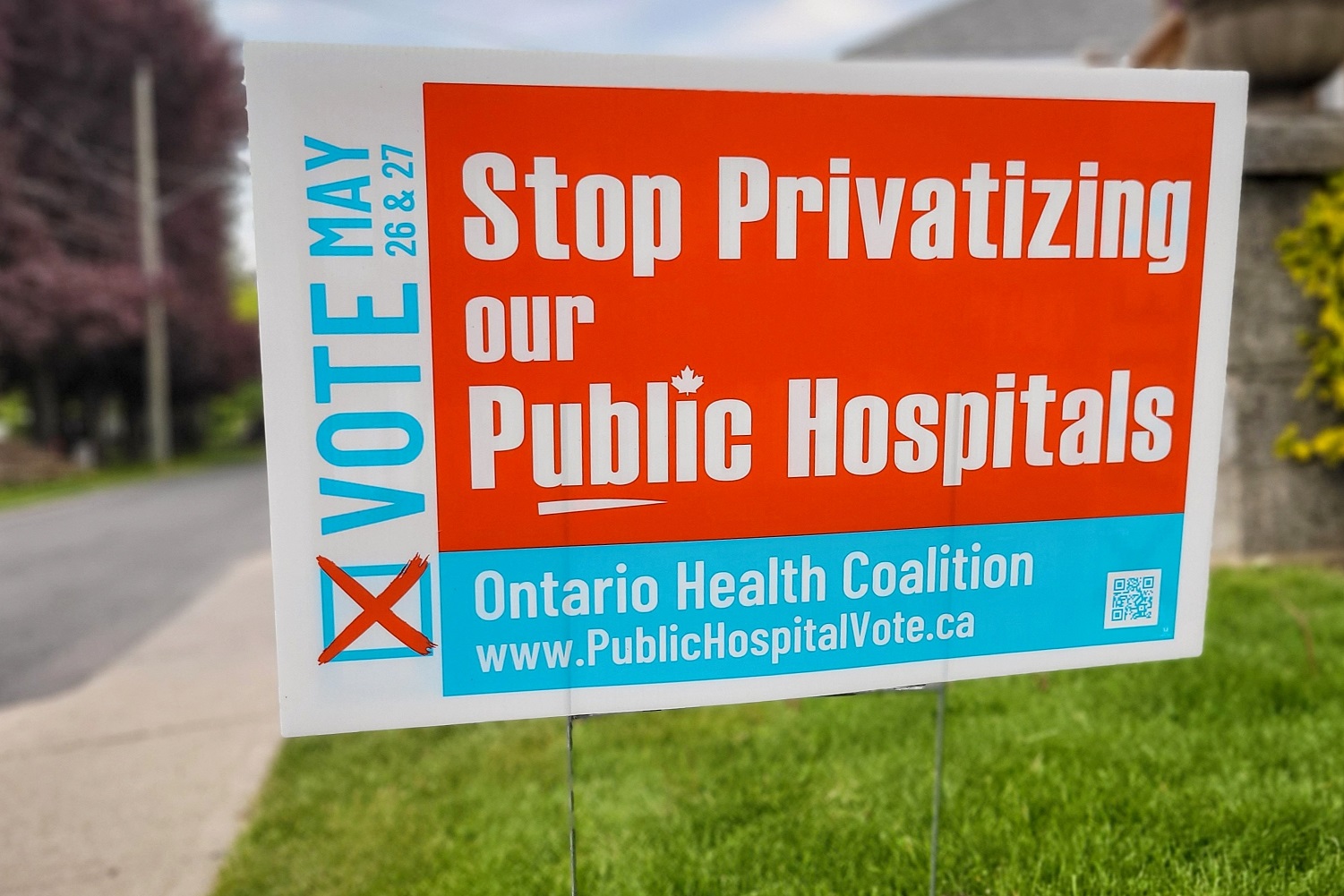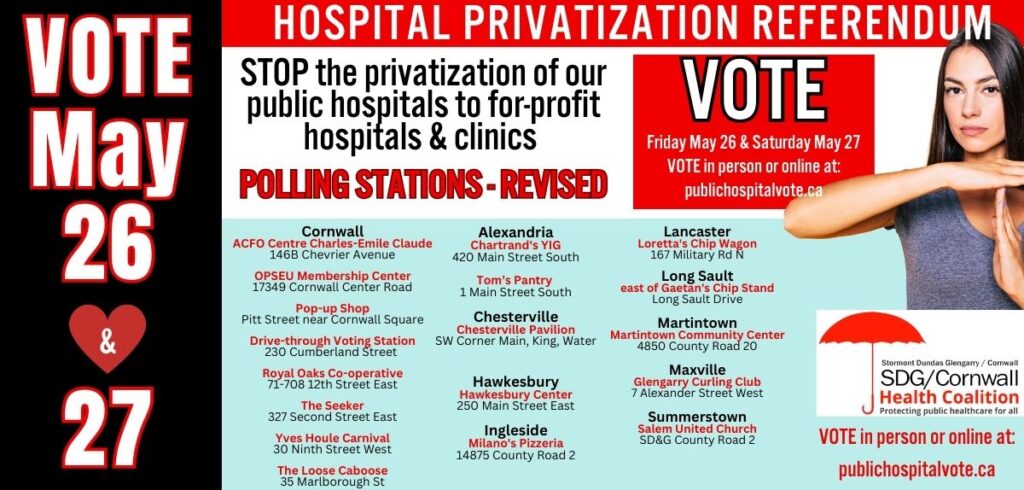
Taken from the writing of Nathalie Mehra of the Ontario Health Coalition. Rewritten a bit and edited by Louise Mignault. Errors & omissions are the fault of Louise Mignault.
The history of public hospitals in Ontario spans over a century, with many institutions founded by municipalities, charitable organizations, and religious orders. In the early 1900s, hospitals gained popularity among the middle class due to advancements in medical technologies such as x-rays, sterile surgeries, and birthing procedures.
A significant study conducted in 1939 revealed a 44% rejection rate among Canadians called up for service in World War II due to poor health. Combined with the experiences of wars, the 1918 flu epidemic, and the mounting healthcare expenses the middle class struggled to pay, this study sparked the movement for public healthcare throughout Canada. Returning veterans joined forces with farmers, laborers, suffragettes, and people from all walks of life to advocate for public health care. As a result, Canada established a universal public health care program including public hospitals and medical insurance based on need rather than ability to pay.
The connection between public hospitals and public health coverage is not coincidental; they are interdependent. Services removed from public hospitals tend to be privatized, accompanied by co-pays, user fees, and compromised quality due to cost-cutting. The Ontario government’s plan to transfer profitable surgeries to for-profit clinics and hospitals would dismantle the century-long efforts of Ontarians who have passionately supported their local public hospitals.
Premier Ford’s statement indicated that around 50% of surgeries, including those performed in medium and small hospitals across Ontario, would be subject to privatization. This decision would have devastating consequences for affected communities who could lose their small local hospitals in favour of private clinics and negatively impact larger hospitals in the province.
How? For-profit clinics operate primarily in large urban centers where they can conduct high volumes of profitable surgeries and cater to a wealthier clientele, often imposing additional user fees. This shift drains resources and funding from local public hospitals, leaving them with fewer staff and inadequate funding to care for more the complex patients for-profit clinics leave behind.
Meta-analyses, which analyze numerous studies encompassing millions of patients and thousands of hospitals, demonstrate higher mortality rates in for-profit hospitals and clinics. Many for-profit establishments unlawfully charge patients thousands of dollars for medically necessary procedures and diagnostic testing. They also manipulate patients, particularly the elderly on fixed incomes, into paying for unnecessary services, undermining public healthcare.
The Canada Health Act stipulates that all medically necessary hospital and physician services should be provided without additional user charges or extra billing. It prohibits physicians, whose education is publicly subsidized, from practicing both within and outside public healthcare simultaneously. These provisions ensure that care is accessible when individuals are sick, elderly, or incapable of paying. The privatization of public hospital services by for-profit entities jeopardizes these protections.
Beyond healthcare concerns, there is also a question of democracy. Prior to the last election the Ontario government denied that they would privatize our hospital services and yet plans for privatization and the expansion of for-profit clinics were announced shortly after the provincial election.
A citizen-run referendum is a democratic response to the undemocratic dismantling of public healthcare services. It allows individuals to vote either for or against privatization, and the voting process is conducted to ensure anonymity. Preserving the democratic right of Ontarians to have a say in matters crucial to their health and communities is essential.
This is not a partisan issue; it concerns the health and the future ownership and control of services that have taken generations to build. The Canada Health Act was unanimously passed by all federal political parties, demonstrating a deep consensus among Canadians that public healthcare should remain separate from the uncertainties of the private market. Equity and compassion are fundamental principles that we all believe in when it comes to public healthcare.
The Ontario Health Coalition has worked tirelessly to protect our public healthcare and local institutions from cuts, privatization, and downsizing, regardless of the governing party. We have the support of the majority of the public, and our members come from all political affiliations. We operate with unwavering integrity while ensuring that the protection of our local public hospitals and services remains free from politicization.
On May 26 & 27, Vote.












